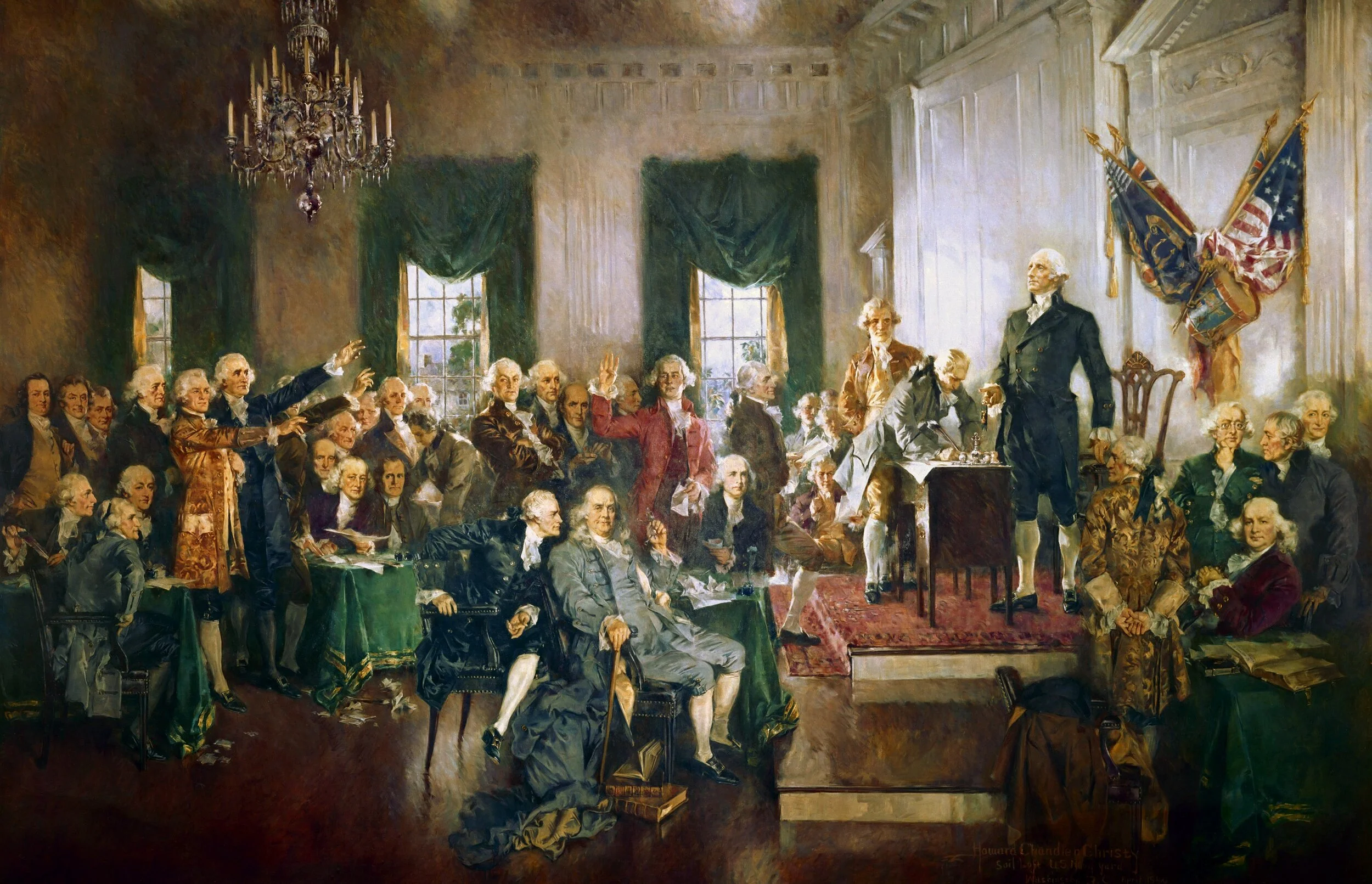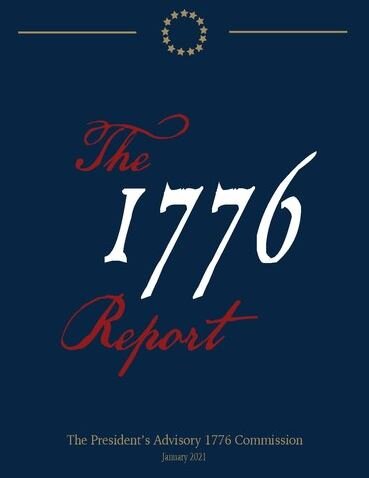"Get People to Stop Reading"
/One of Joe Biden’s first actions upon taking the office of president was cancelling a program called The 1776 Commission. The purpose of that effort was to promote knowledge of American history and traditional American values.
Biden canceled it because critics had found the Commission’s report to be a sloppy, rushed piece of work that boosted white supremacy at the expense of serious, balanced history. The precise word used to describe the report was “garbage.”
Historians, in turn, generally agree that the report -- released by the Presidential Advisory 1776 Commission -- is garbage. The document lacks citations, fails to mention Native Americans entirely, traffics heavily in American “values” at the expense of objective truths and bemoans the “radicalization of American politics” from the 1960s onward.
That statement appeared in Inside Higher Ed in January 20, 2021 — the day Trump left office and Biden moved in. The Washington Post coverage was just as critical.
“It’s very hard to find anything in here that stands as a historical claim, or as the work of a historian. Almost everything in it is wrong, just as a matter of fact,” said Eric Rauchway, a history professor at the University of California at Davis. “I may sound a little incoherent when trying to speak of this, because the report itself is not coherent. It’s like historical wackamole.”
The thing is, Professor Eric Rauchway is wrong. Much in the 1776 report is correct and historical. I haven’t read the whole thing, but I have sample sections at random. On page 3 there appears a quote that the 1776 Commission attributes to founding father John Jay and claims was published among The Federalist Papers. It says:
Providence has been pleased to give this one connected country to one united people--a people descended from the same ancestors, speaking the same language, professing the same religion, attached to the same principles of government, very similar in their manners and customs, and who, by their joint counsels, arms, and efforts, fighting side by side throughout a long and bloody war, have nobly established general liberty and independence.
Jay did, in fact, write exactly those words and publish them in Federalist #2. The 1776 Commission did not make up the quote, nor attribute it falsely. Anyone, then and now, can recognize that the claim of cultural unity was exaggerated. I point out Jay’s errors in my commentary on Federalist #2, which you can read here. The 1776 Commission recognizes Jay’s errors, too, in the next paragraph after the quote:
The newly formed American people were not quite as homogeneous — in ancestry, language, or religion — as this statement would seem to assert.
Again, correct. In point of fact, the 41-page 1776 Commission report contains plenty of accurate statements. That doesn’t make the report a solid bit of research or historical writing. The lack of footnotes of citations is a serious defect. And it is obvious from a quick skim that very much has been left out.
But every book ever written leaves some details out. The 1776 report isn’t necessarily wrong because details are omitted or because statements are unsourced. Unsourced means the reader has to look up the source himself or herself. And when I did that, I found the Jay quotation was correct.
Rauchway and others have exaggerated their criticisms of the report. I suspect he counts on people reading the article he’s quoted in, but not reading the actual report. That become a safer gamble knowing that Biden has closed down the Commission.
There’s no doubt that Trump’s Commission was created to push the old narrative of American History — the one where white men did everything worth doing, good people got rich and America was best at everything. They wanted to make the effort because that old narrative is being edged out by some new and excellent contemporary, post-modern historical writing such as Howard Zinn’s “A People’s History of the United States,” and the more recent “These Truths,” by Jill Lepore. Those books, and others like them, devote a good share of pages to women, and Indians, and the plight of enslaved black people, and immigrants, and workers.
I’ve read Zinn and Lepore, and I think what they have to say is important to know. Zinn is controversial and strongly criticized by the traditionalists. Zinn focuses on the suffering of slaves. But does anyone seriously doubt that slaves suffered? Zinn spends time talking about less-well known massacres of Indians during the colonial period. But does anyone doubt that Indian massacres happened? Zinn reports accurately about real events. Likewise, Lepore brings into the narrative some less familiar names and events, but the facts she reports are correct.
A Citizen’s Syllabus is devoted to American governance, and to learning and thinking rightly about the nation’s history, and to combining knowledge with good will and effort to improve citizenship.
With those priorities, we think that all those sources ought to be available. And they will be. As I write this on the afternoon of January 20th, several of the website links to The 1776 Commission’s documents have already been taken down and show only a 404 error. But you can still see the report at the internet archive link shown here:
https://archive.org/details/the-presidents-advisory-1776-commission-final-report_20210120/page/n5/mode/2up
Real knowledge comes from sifting through many sources and holding them all arm’s length. Some sources are better than others, but no source of information about a topic as large and complex as American History is complete. I am sure that the 1776 Commission gives a biased perspective on American history. But it is exactly the biased perspective that you’d expect from that direction. Zinn’s book is also biased. He’s a socialist, and he described history as you expect a socialist to.
Ray Bradbury
American citizens should not be in the business to closing down access to information. Consider the words of 20th century science-fiction writer Ray Bradbury:
“You don’t have to burn books to destroy a culture. Just get people to stop reading them.”
The conservatives want you to stop reading Zinn. The progressives want you to stop reading the 1776 Commission. A Citizen’s Syllabus wants you to look for the complex truth, and wants you to be able to read a skewed version of a story and learn from the skew.
A day after the above was written, the conservative National Review printed a comment by Victor Davis Hanson. Hanson was a member of the 1776 Commission and is a longstanding neo-conservative.
With the change of administrations, the commission may be short-lived, given that it was born in the chaos of the divisive present. President Joe Biden already has sought to terminate the commission through an executive order.
But any fair critic can see that the report’s unifying message is that we are a people blessed with a singular government and history, that self-critique and moral improvement are innate to the American Founding and spirit, and that America never had to be perfect to be both good and far better than the alternatives.
That last line holds the crux:
America never had to be perfect to be both good and far better than the alternatives.
For white men with incumbent wealth, good citizenship means defending a system that made them winners. The “alternatives” that America is better than is a carefully curated list. The people who imagine an “alternative” that is actually better than the current America (better because it is safer, healthier, and fairer) are a threat.










